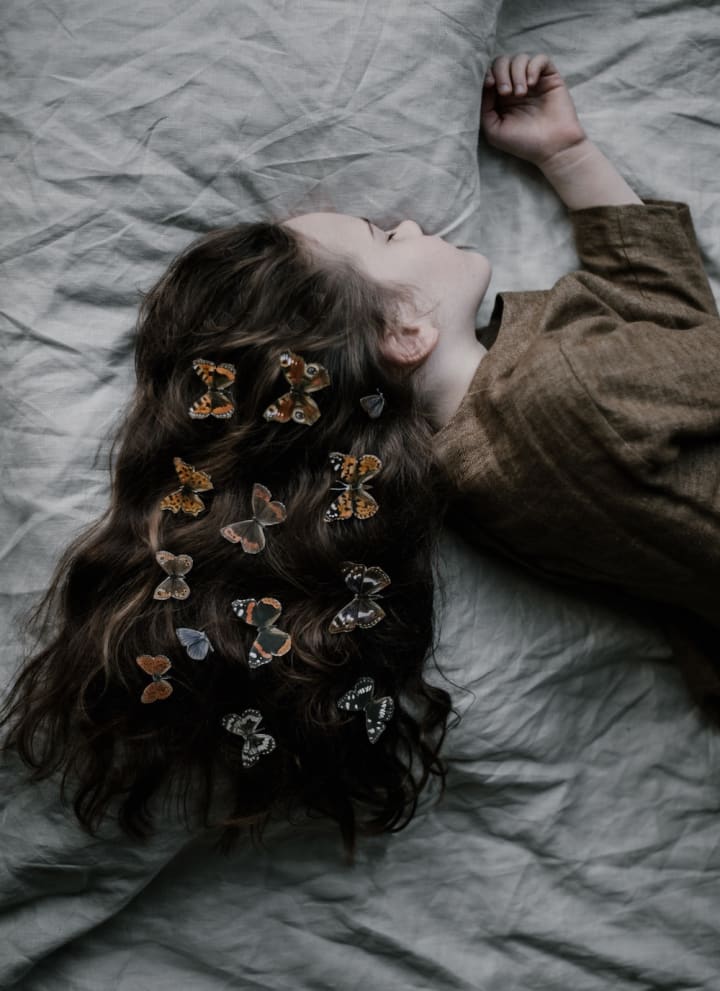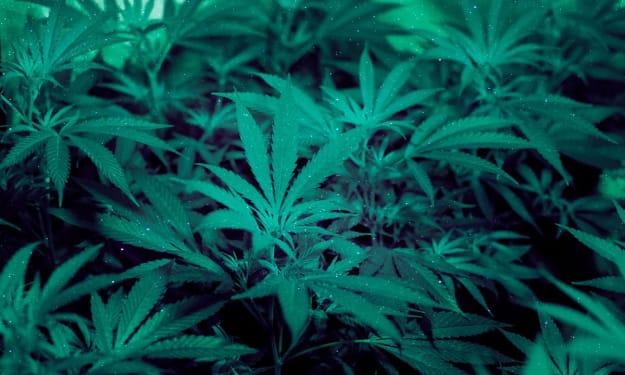How Smoking Weed Can Cause You to Dream Less
If you've noticed a change in your sleeping habits, it's not just in your head. Smoking weed can cause you to dream less and sleep more deeply.

If you've just recently started smoking weed, you may or may not have noticed a decrease in your ability to remember your dreams. On the flip side, if you're like me and hardly ever remember your dreams, you make notice that they return if you take a break from smoking marijuana. Personally, I've never cared too much about whether I remember my dreams or not, but your mileage may vary. If you ask me, its a worthwhile trade-off for the other effects smoking weed has, namely a refreshing, deep sleep. But why does weed have any effect on our sleeping habits?
The relationship between cannabis and sleep is not thoroughly understood, but the exact effects of cannabis on dreams and the sleep cycle have recently come to light. Somnologists (sleep scientists, basically) have only recently delved into studying our favorite plant, but its already apparent that THC has a direct effect on the stages of sleep. There are even some great cannabis strains for sleep. This evidence helps us understand how smoking weed can cause you to dream less and sleep more deeply.
How Sleep Works

Before we get too deep into understanding how smoking weed can cause you to dream less, let's get on the same page as to exactly how the sleep cycle works. As of 2008, somnologists consider there to be four distinct and discrete stages of sleep. That number used to be five until somnologists realized that stages three and four were basically the same thing. These stages can be separated into two categories: rapid eye movement sleep, and non-rapid eye movement sleep.
The first three stages form the non-rapid part of the sleep cycle. Stage one is the lightest, being around the level of "dozing off" or "resting your eyes." Your eyes move slowly and your muscles are beginning to relax, but it is still easy to get woken up at this stages. The second stage is when the body prepares for deep sleep. Eye movement stops completely and your brain waves slow. Your body temperature drops slightly, as does your heart rate.
Stage three (formerly known as "stages three and four") is the deep sleep phase. These phases, by the way, are determined by the nature of your brain waves. They get slower throughout each stage until the deep sleep phase, during which extremely slow delta waves are predominant. Deep sleep is one of the most important when it comes to you feeling rested and alert the next day. If you wake up during this stage, you will generally feel pretty groggy.
The final stage of the sleep cycle is so unique and important that it gets its own category. Rapid eye movement sleep is the phase that brings you back from a deep sleep to a lighter sleep characterized by—you guessed it—rapid movement of the eyes. You've probably heard of rapid eye movement or "REM cycles" before, as it far more famous than the other phases of the sleep cycle thanks to the vivid dreams that occur during this phase. Your increased brain activity during the REM phase makes you more likely to dream, but that's as deep as I'm going to get into the science of why dreams happen.
To recap before we move on, the sleep cycle includes four phases. To understand the effects of cannabis on sleep, the main thing you need to know is that there is a deep sleep phase (phase three) which refreshes your body and a rapid eye movement, or REM, phase which is when dreams happen. These are the two phases that are most affected by marijuana. By the way, all four of these phases take place in the span of about an hour and a half. The REM phase cycles back to phase one and the whole process starts over again, so you'll experience four to six cycles on an average night.
How Smoking Marijuana Affects Your Sleep

Now that you understand the basics of the sleep cycle, it's fairly straightforward to understand the relationship between cannabis and sleep and how smoking weed can cause you to dream less. When researchers studied the effects of cannabis on the sleep cycle, they administered THC to the subjects and measured their brainwaves as they slept. They then studied this record of brainwave activity, simply referred to as an electroencephalogram, against a drugless sleep as a control.
The study found that the lighter stages of sleep were relatively unaffected, but found that THC had a significant effect on the brainwaves associated with the deep sleep and REM phases. The delta brainwaves that dominate the deep sleep phase were much more prominent when the subjects had been given THC. On the other hand, the brainwaves associated with rapid eye movement sleep (gamma waves) were greatly reduced. The takeaway from this study is that smoking marijuana prolongs deep sleep and suppresses REM sleep in a consistent and observable way.
What This Means for Your Dreams

Put into simpler English, smoking weed promotes the type of sleep that is deepest, slowest, and most important for our nightly recovery. This is why you may feel like you had a particularly good night's rest the night after enjoying a bowl. Generally speaking, more deep sleep is pretty great. However, some somnologists warn that you don't want to suppress REM sleep that often.
There are a few downsides to a shorter REM cycle. For one thing, the REM cycle serves an important purpose in the sleep cycle by providing a psychological "reboot" of sorts. By smoking marijuana, which suppresses REM sleep, you're limiting the positive effect of this reboot. It's also important to understand that the REM phase is often where our brains are when we wake up. By decreasing this phase, you are much more likely to wake up during the deep sleep stage, which will result in a groggy morning for you.
Since smoking weed can cause you to dream less, you should consider whether or not you want dreams to be a part of your nights. Maybe you want to really learn how to interpret your dreams. But, there are reasons to avoid dreams, especially if you're dealing with a form of post-traumatic stress disorder. The important thing is that now you have some solid knowledge of the relationship between weed and dreams—use it how you will.
About the Creator
Joseph D. N. Kendrick
Writer of words. Haver of cats. joeykendrick.com
Enjoyed the story? Support the Creator.
Subscribe for free to receive all their stories in your feed. You could also pledge your support or give them a one-off tip, letting them know you appreciate their work.






Comments
There are no comments for this story
Be the first to respond and start the conversation.